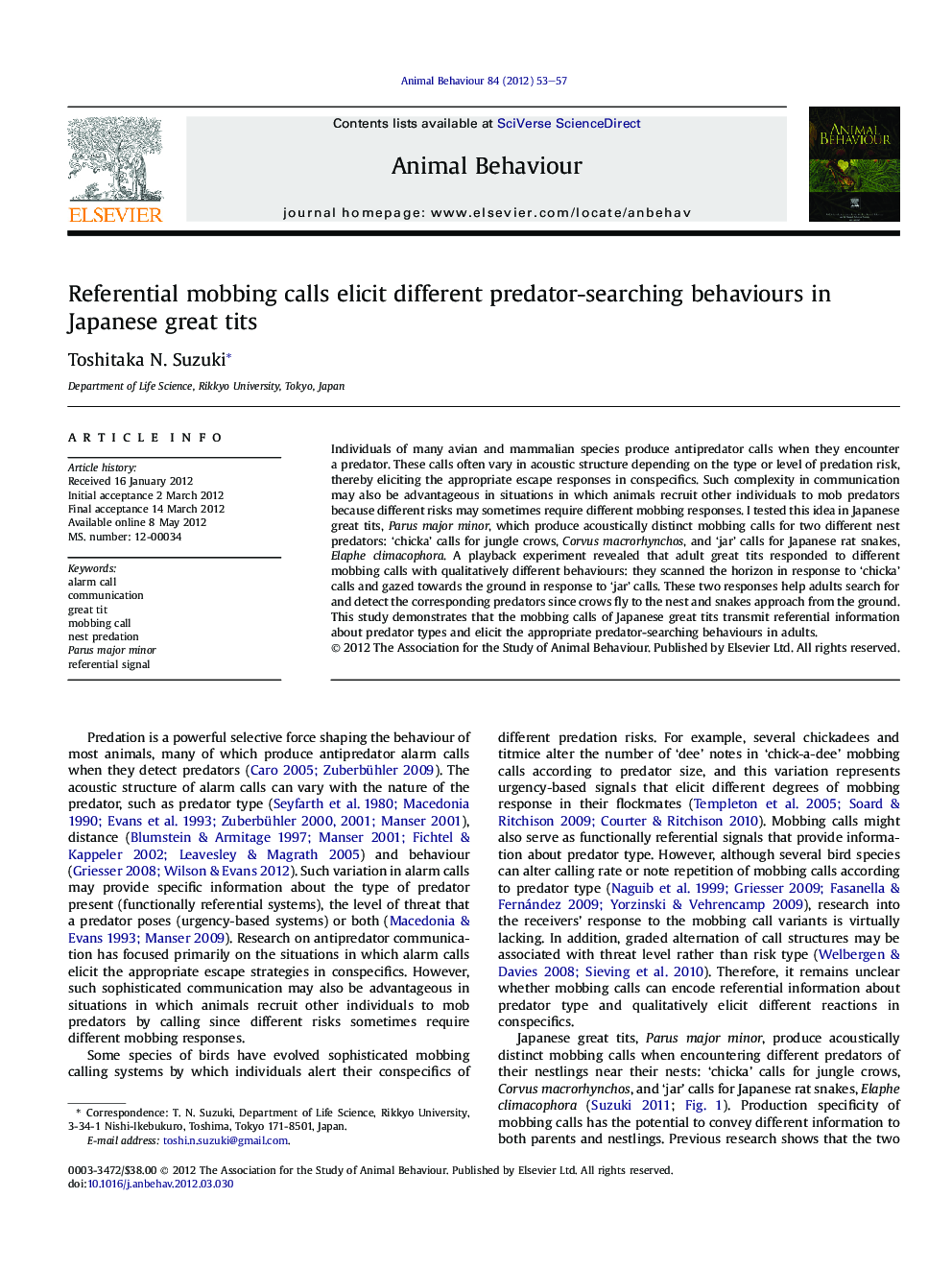| کد مقاله | کد نشریه | سال انتشار | مقاله انگلیسی | نسخه تمام متن |
|---|---|---|---|---|
| 2416674 | 1104290 | 2012 | 5 صفحه PDF | دانلود رایگان |

Individuals of many avian and mammalian species produce antipredator calls when they encounter a predator. These calls often vary in acoustic structure depending on the type or level of predation risk, thereby eliciting the appropriate escape responses in conspecifics. Such complexity in communication may also be advantageous in situations in which animals recruit other individuals to mob predators because different risks may sometimes require different mobbing responses. I tested this idea in Japanese great tits, Parus major minor, which produce acoustically distinct mobbing calls for two different nest predators: ‘chicka’ calls for jungle crows, Corvus macrorhynchos, and ‘jar’ calls for Japanese rat snakes, Elaphe climacophora. A playback experiment revealed that adult great tits responded to different mobbing calls with qualitatively different behaviours: they scanned the horizon in response to ‘chicka’ calls and gazed towards the ground in response to ‘jar’ calls. These two responses help adults search for and detect the corresponding predators since crows fly to the nest and snakes approach from the ground. This study demonstrates that the mobbing calls of Japanese great tits transmit referential information about predator types and elicit the appropriate predator-searching behaviours in adults.
► Great tits produce two distinct mobbing calls for different nest predators.
► The two mobbing call types elicit different predator-searching behaviours in adults.
► The mobbing calls of great tits convey information about nest predator type.
Journal: Animal Behaviour - Volume 84, Issue 1, July 2012, Pages 53–57